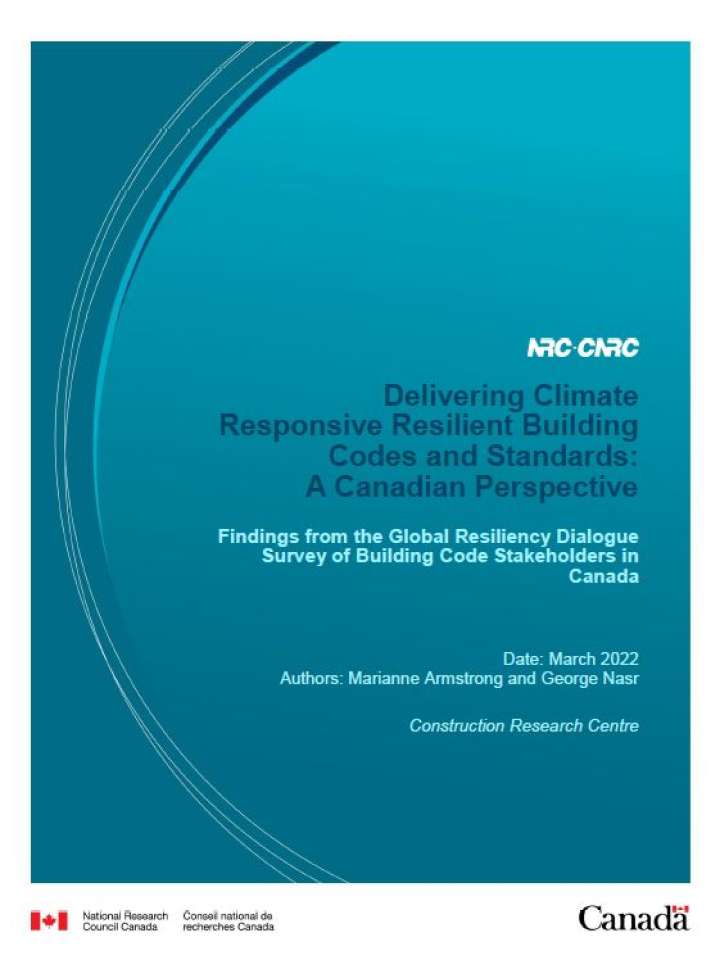Delivering climate responsive resilient building codes and standards: Canada (2022)
This report provides a summary of findings from a targeted survey in December 2020 to map out and outline ongoing efforts and needs in the space of climate adaptation and resilience for buildings, with particular focus on building codes and standards. The survey results were collected through a callout to members of the Infrastructure and Buildings Working Group of Canada’s Adaptation Platform.
The survey shows that numerous stakeholders are well engaged in this area, and generally ideas are well aligned. The survey highlights the progress made in generating the science and information needed to make buildings more resilient, such as climate data, guidance and guide documents, and various incentive programs to promote adaptation and resilience. The survey also outlines a number of areas that remain to be addressed, in order to better inform important policy discussions on the role of the codes in addressing climate resilience, establishing the performance targets and acceptable risk, and having the impact analysis data to justify changes to regulation.
The survey confirms that codes remain only part of the solution to achieving climate resilience in the built environment, and outlines their limitations. It highlights the need for a variety of policy instruments to address adaptation, and identifies a few examples. Quality and source of climate data information, as well as understanding of this information were highlighted as a key area for action. This would include a commitment to improving and updating climatic design data/maps in a changing climate and to educating both decision makers and the public. Involvement of decision makers at all levels of government, industry, and public in a coordinated matter was seen as critical, with the current codes system seen as providing a good forum to ensure all the main stakeholders are on board and aligned.
Explore further
